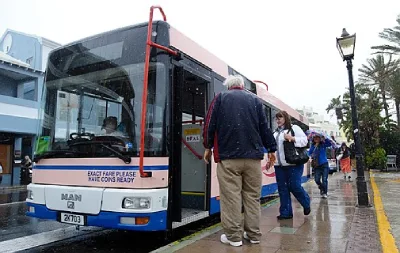Lovely Bermuda is an ideal place to live, with its stunning beaches and colorful culture. But the privilege of living in this tropical paradise does not come cheap. Usually, to live in the lap of luxury in Bermuda will cost you around $150-$250k per year. The actual figures vary depending on your lifestyle choice, housing decisions, and the number of dependents.
Bermuda is among the most expensive places to live, particularly in terms of housing and imported goods. In this guide, we’ll try to explain these costs and how much you have to earn to live in Bermuda.
Key Takeaways
- Bermuda has a high cost of living, requiring a substantial income to live comfortably.
- Housing is the largest expense, with rents ranging from $3,000 to over $10,000 per month.
- Utilities and groceries are costly due to Bermuda’s reliance on imports.
- Careful financial planning and budgeting are essential for anyone thinking about moving to Bermuda.
Understanding the Cost of Housing in Bermuda
Housing is one of the biggest factors contributing to Bermuda’s high cost of living. The island’s small size and the demand for housing, both from locals and expatriates, drive prices up to levels similar to those in some of the most expensive cities in the world.
Types of Housing Available
In Bermuda, you can either rent or buy a property, each with its financial considerations.
- Renting: It is the most straightforward option for people moving to Bermuda. You can find the average cost of rent in Puerto Morelos here and also get an idea of what is available, from simple apartments near downtown to luxury beachfront homes. These prices vary from place to place and by type of property. A single-bedroom apartment will probably be between the $3,000-$5,000 range for the city center, and a 3-bedroom house in the suburbs may reach as much as $6,000-$10,000 per month or more.
- Buying: The process of purchasing real estate is somewhat more complicated in Bermuda, especially for non-Bermudians. The shortage of supply in the market is exacerbated by regulations such as minimum purchase prices and additional taxes for foreign ownership. Non-Bermudians, for example, typically have to spend at least $2.5 million just on buying a home and can be forced to pay as much as 6% of the price in an expensive foreign buyer’s tax.
Cost of Utilities and Groceries
Utilities and groceries are very expensive living in Bermuda. The high prices can be attributed to where the island lies geographically (expensive transportation costs) and the fact that just about everything must be brought in via cargo, fuel included.
Utilities
For most of us, utilities are one of the biggest costs we have to cover every month. In terms of electricity, it’s devastating since it is highly expensive, as Bermuda must import fuels from other countries. Common utility costs explained.
- Electricity: The cost of electricity is around $0.42 per kWh, one of the highest rates in the world. Monthly bills can easily exceed $300, especially during the summer when air conditioning is essential.
- Water: Unlike many places, Bermuda does not have a natural freshwater supply. Most homes collect rainwater in tanks, and if you run out, you’ll need to pay for a water truck delivery, which can be costly.
- Internet and Phone: Reliable internet and phone services are available but come at a premium. Expect to pay $100 to $200 per month for a high-speed internet connection.
Groceries
Bermudian grocery shopping can also make the dollar fly, so keep an eye on those bills at checkout time. Because it is mostly imported, prices of food are set at international levels, including shipping and import duties. Here are some approximate average grocery prices for common goods:
- Milk: $10 per gallon
- Bread: $6 per loaf
- Chicken: $8 per pound
- Fruits and Vegetables: $2 to $5 per pound, depending on the item
- Dining Out: A meal at an inexpensive restaurant can cost around $25, while a three-course dinner at a mid-range restaurant may set you back $75 per person.
Transportation Costs in Bermuda
Owing to the island’s small size and limited number of cars, Bermuda also has its unique transportation issues. This is important to determine an estimated amount of how much you have to earn to survive here.

Vehicle Ownership
With limited traffic control to maintain the tranquility of its environment, Bermuda has special legislation when it comes to vehicle ownership. Households are generally only allowed to own one car, and the cost of importing a vehicle can be high. Here’s what to expect:
- Car Purchase: Purchasing a new car in Bermuda can be costly, with prices often ranging from $30,000 to $60,000 or more for a mid-range vehicle.
- Import Duties: If you choose to import a car, you will face import duties that can be as high as 75% of the car’s value.
- Fuel Costs: Gasoline prices are high, typically around $8 to $10 per gallon, due to import costs.
Public Transportation
Many residents rely on public transportation, which is relatively affordable and efficient. Options include:
- Buses: The bus system is extensive and serves most areas of the island. A monthly pass costs around $69.
- Ferries: Ferries provide a scenic way to travel between Bermuda’s main islands. Fares are reasonable, with a one-way ticket costing around $5.
- Scooters and Bikes: Renting or purchasing a scooter or bike is a popular option for getting around. Expect to pay $3,000 to $5,000 for a new scooter.
Healthcare Costs and Insurance
Healthcare in Bermuda is of a high standard, but it comes with a price. Understanding the costs associated with medical care is crucial when considering how much you need to earn to live in Bermuda.
Healthcare System Overview
Bermuda’s healthcare system is a mix of public and private services. All residents are required to have health insurance, either through their employer or privately.
- Health Insurance: Monthly premiums for health insurance can range from $400 to $1,500 per person, depending on the level of coverage.
- Out-of-Pocket Expenses: Even with insurance, out-of-pocket costs can be significant. For example, a visit to a general practitioner might cost $150 to $200, while specialist consultations can exceed $300.
- Emergency Services: Emergency care is available, but it’s important to note that medical evacuation to the United States may be necessary for certain procedures, adding to potential costs.
Education and Schooling Costs
If you have children, education is a significant factor in determining how much you need to earn to live in Bermuda. The island offers both public and private schooling options, each with its financial implications.
Public vs. Private Schools
- Public Schools: Public education is free for residents, but expatriates often choose private schools due to differences in curriculum and teaching standards.
- Private Schools: Private school tuition ranges from $15,000 to $30,000 per year, depending on the school and the child’s grade level.
Entertainment, Leisure, and Lifestyle Expenses
Bermuda is a very nice place to live, but it does come at some expense. It is important to be aware of these costs, whether you are eating out, doing some water sports, or discovering the island and its great culture; for Bermudians to know how much money they need per year at minimum. Although Bermuda offers plenty of ways for you to unwind and have a good time, it can end up costing significant portions of your budget.
FAQs About Living in Bermuda
Is Bermuda an expensive place to live?
Yes, Bermuda is one of the most expensive places to live in the world, with high costs for housing, utilities, groceries, and transportation. A significant income is required to maintain a comfortable lifestyle.
What is the average salary in Bermuda?
The average salary in Bermuda varies widely depending on the industry, but many expatriates working in professional sectors earn between $100,000 and $200,000 per year.
Is healthcare free in Bermuda?
No, healthcare in Bermuda is not free. All residents are required to have health insurance, and out-of-pocket costs can be high even with coverage.
Can I buy property in Bermuda as a foreigner?
Yes, but there are strict regulations and minimum purchase prices for non-Bermudians. Foreigners typically need to spend at least $2.5 million to buy a home.
Is it possible to live in Bermuda on a modest income?
While it’s possible, living on a modest income in Bermuda would require significant sacrifices, such as choosing less expensive housing, limiting dining out, and carefully budgeting for necessities.
Conclusion
Bermuda is an island for the rich and famous, but one needs to play it smart as Bermuda isn’t a cheap place. Housing and utilities, entertainment to healthcare—everything in Bermuda has a price precariously marked with this warning: living life on the island barehanded means living expenses are costly.
What does it take to live in Bermuda? This answer varies from lifestyle to lifestyle, but I’d say that making anywhere between $150k and $250K a year would probably allow for comfortable living. Thinking of relocating to Bermuda? What are you doing to make sure your financing is in check?

